Watch: BBC report from last checkpoint before Suweida city
The BBC has been trying to reach the southern Syrian city of Suweida where sectarian clashes between Druze fighters and Bedouin tribal militia have killed hundreds of people. A fragile ceasefire is holding, but the area remains extremely tense.
On Monday, we got within six miles of Suweida, as close as it was deemed safe to go.
"There are Druze snipers operating on the road ahead. That is the biggest danger," a Syrian army commander warned us as we approached.
On the way we passed through deserted Druze villages, now under full Syrian government control.
Over the past week, this highway has clearly been a battlefield. Shops and businesses have been burnt out. The pavements are littered with shell casings.
Every half a mile or so we'd come across small groups of resting Syrian army soldiers. Young men, all in black, sipping on hot tea, their guns by their sides.

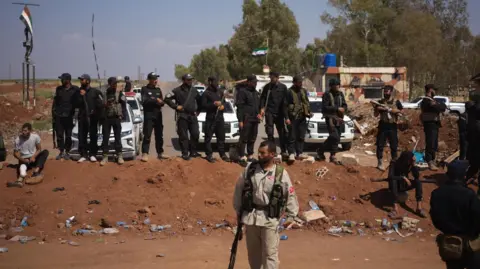
Heavily-armed government security personnel were present in the area
It's four days since the Syrian government deployed its troops to enforce a ceasefire.
The aim was to try and bring an end to a week of sectarian violence between the minority Druze religious community and Bedouin tribesmen that has left more than 1,000 people dead.
For now that ceasefire appears to be holding, but it's fragile.
As we headed south, we came across hundreds of armed Bedouin massed by the roadside.
In their distinctive red and white headscarves, they were in a defiant mood, firing wildly into the air, as Syrian government soldiers looked on anxiously.
All of them said they were prepared to take up arms again if the ceasefire breaks down.

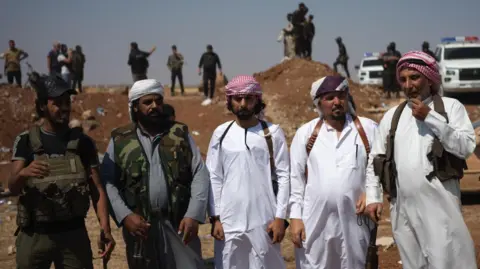
Bedouin fighters the BBC spoke to said they were ready to take up arms again if the ceasefire failed

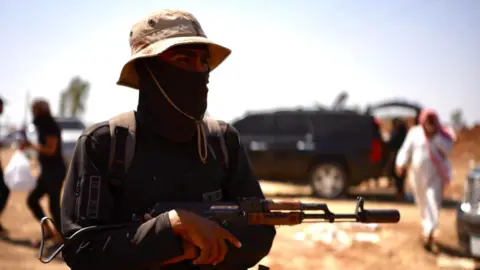
The ceasefire is holding for now
Meanwhile, the Syrian Red Crescent has managed to get some of the injured out of Suweida.
At the main hospital in the southern Syrian city of Deraa, we saw some of the wounded being brought in.
Ahmed, 27, was hobbling on crutches, still in his Syrian army fatigues but with his left foot heavily bandaged.
"A rocket propelled grenade exploded, and I was hit by shrapnel," he said, wincing.
"I want to make something clear when we entered Suweida, the houses in front of us were burnt out, the bodies of children were burned, there were children with their heads cut off," the young solider said.
"The situation was beyond imagination."
The BBC has not been able to verify his claims.

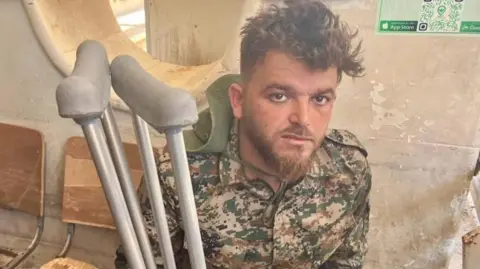
Ahmed said he was hit by shrapnel from a rocket propelled grenade during recent fighting
Outside the hospital, I talked to Riham Bermawi, a coordinator for the Syrian Red Crescent.
Calling the situation "catastrophic", she said there was a shortage of medicines and first aid kits.
"Too many surgeries needed," she added.
She had just managed to bring some of the wounded out of Suweida province, but she said it was likely too dangerous on the road to try another medical evacuation that day because snipers were shooting at the ambulances.

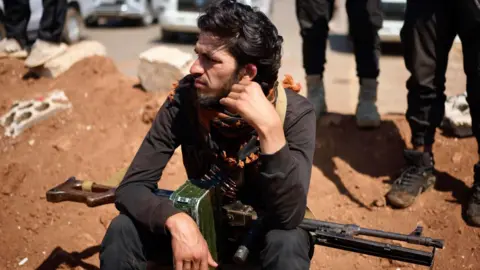
A Syrian army fighter resting after the recent action
So, what does the future hold for Syria?
This past week has seen the most serious sectarian violence since the Syrian uprising which brought the Islamist rebel leader Ahmed al-Sharaa to power late last year.
It came after decades of dictatorship under the Assad regime.
"We all need to work more for Syria and to be united," Raed al-Saleh, minister of disaster management and emergency response, told me at a shelter for displaced people in Suweida province.
"We have many challenges, but we also have great hope," he said.
"We have wise men in our communities so I believe that we can overcome this difficult phase, and we can achieve peace and justice."
But on the road to Suweida city, we did not witness much of that.
.png)
 4 months ago
13
4 months ago
13
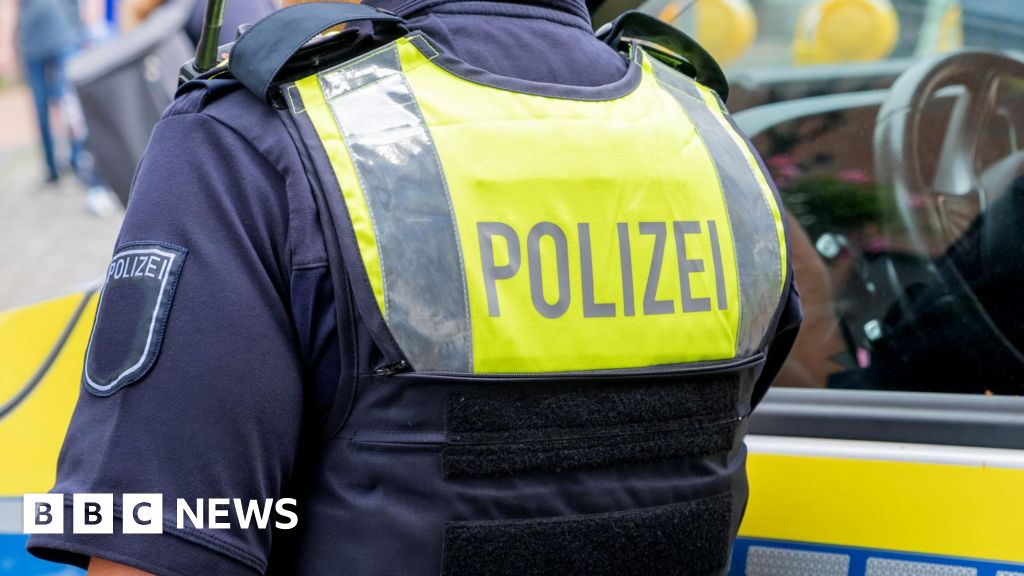
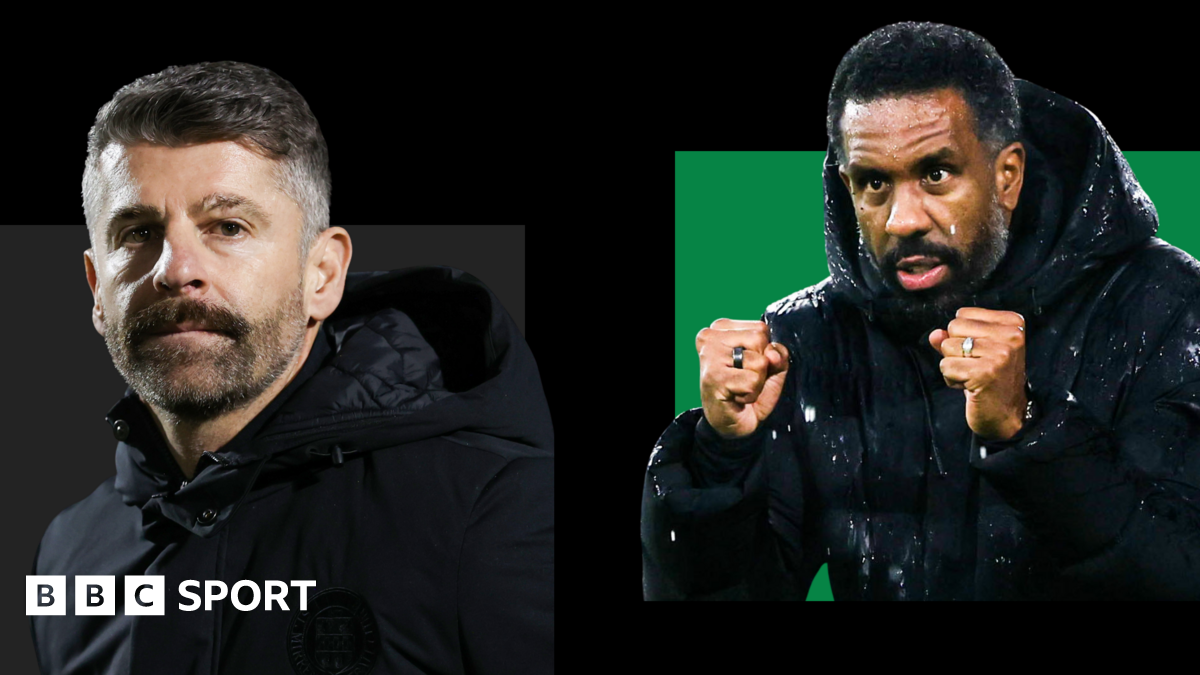
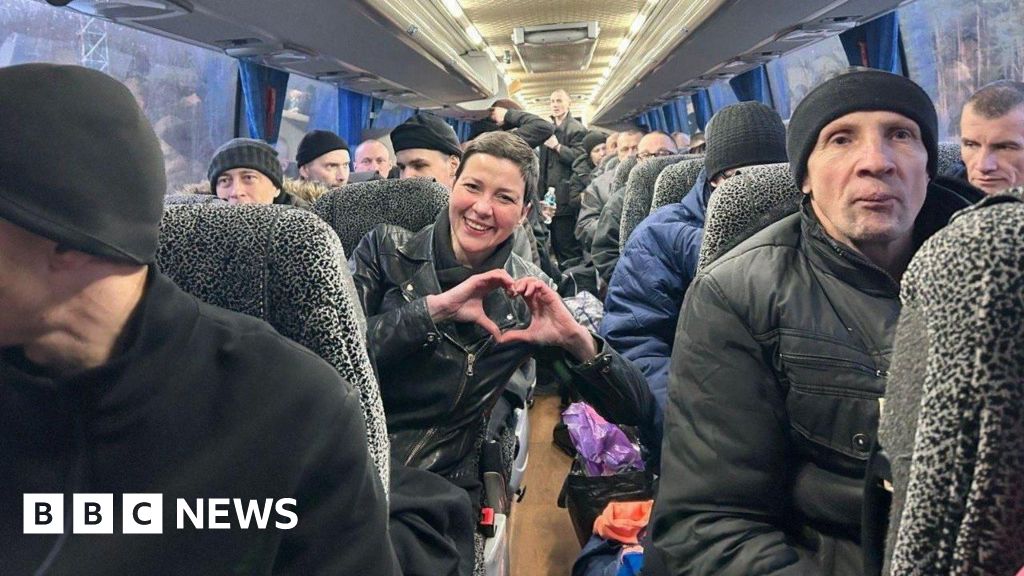





 English (US) ·
English (US) ·